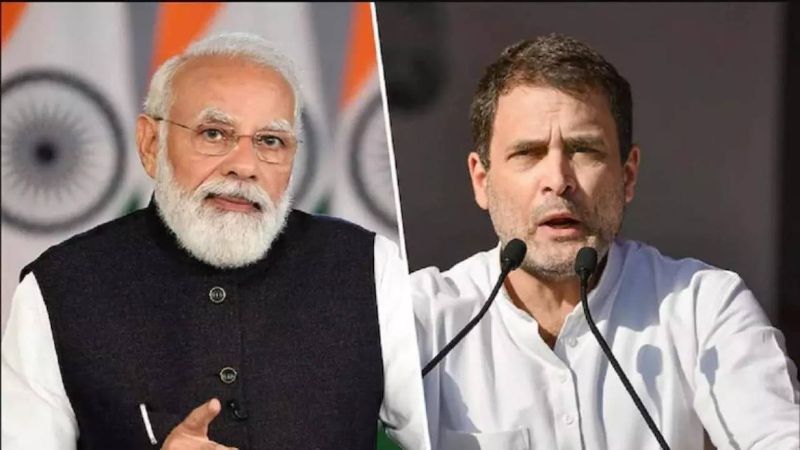In the intricate tapestry of Indian politics, Rahul Gandhi’s journey within the Congress party has been riddled with a lack of a discernible vision and strategic acumen, ultimately resulting in electoral setbacks and a seeming disconnect with the voting populace.
A longstanding trend within the post-independence Congress party has been the dominance of familial ties, with prime ministerial contenders predominantly emerging from the Gandhi family. This persisted even during non-Gandhi tenures, as evidenced by Dr. Manmohan Singh’s time in office, where Sonia Gandhi, as party president, wielded significant influence.
The pivotal moment came in 2014 when the Congress party faced a resounding defeat, paving the way for the charismatic Narendara Modi of the Bharatiya Janata Party (BJP) to assume the Prime Minister’s office. Modi’s appeal extended beyond India’s borders, earning him acclaim on the global stage, particularly in the Middle East.
Modi’s proactive foreign policy, coupled with his stance of not yielding to foreign leaders, struck a chord globally and resulted in strengthened ties with Middle Eastern nations such as the UAE, Saudi Arabia, Israel, and Oman. The UAE, in particular, honored him with its highest accolade—citizenship.
Contrastingly, Rahul Gandhi’s political vision has faced criticism for its lack of coherence and foresight. His strategic move from the traditional stronghold of Amethi to Wayanad before the 2019 Lok Sabha elections raised eyebrows, suggesting a tactical shift to secure victory against BJP’s Smriti Irani.
Recognizing the electoral challenges, the Congress party opted for an alliance strategy before the 2014 Lok Sabha elections. However, internal conflicts within the I.N.D.I. alliance, comprising various regional parties, thwarted a unified front. Disagreements over the choice of a prime ministerial candidate exposed the Congress party’s historical tendency to prioritize leadership from the Gandhi family.
Critics argue that under the stewardship of Rahul and Sonia Gandhi, the Congress party stifles internal dissent, hindering the emergence of strong leaders within the party. Instances of politicians departing the Congress to establish their own political entities due to perceived shortcomings in internal democracy have been observed.
While Rahul Gandhi and the Congress party persist in echoing the age-old slogan of “Garibi Hatao Desh Bachao” (Eradicate Poverty, Save the Nation), skeptics highlight a history more marked by rhetoric than substantive action. In contrast, the Bharatiya Janata Party, under the leadership of Narendara Modi, is perceived as having a clearer vision for the country’s development, garnering electoral support on the belief that Modi is a leader capable of translating these aspirations into reality and working for the welfare of the people.

